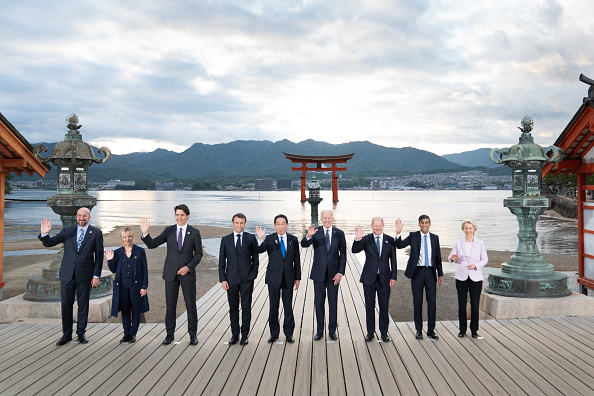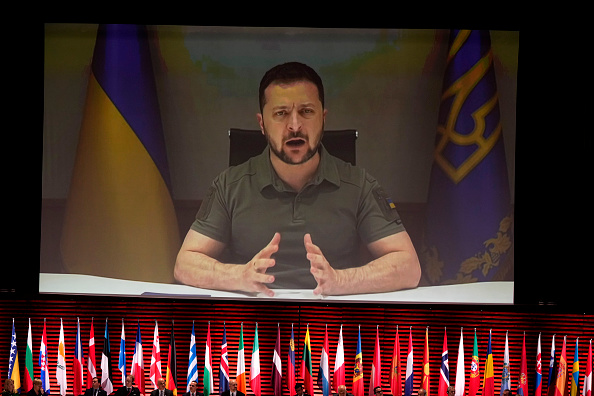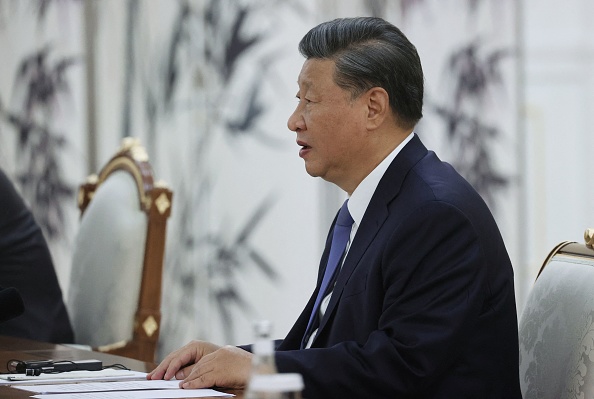
 More than Words
More than WordsAs the Group of Seven industrialized nations meet in Japan, the U.S. is facing an unprecedented challenge in ongoing debt ceiling negotiations, causing President Biden to shorten his trip that was supposed to include visits to Papua New Guinea and Australia, and a previously scheduled summit of Quad leaders from the U.S, India, Australia, and Japan. Biden is trying to find a solution to avoid a default that would cause shockwaves across the global economy.
While the chances of a U.S. default are still low, some analysts believe it would benefit China, positioning it as a more stable and attractive investment option. Beijing has long wanted the yuan to be used in global trade, and a default would be a huge help for China in this regard. Pentagon and U.S. Air Force leaders warned that a default on the national debt would "embolden" China, devastate the Pentagon budget, and put troops' pay at risk.
Meanwhile, relations with China remain a hot topic as the G7 leaders meet to discuss a long list of global challenges. John Kirby, a spokesman for the National Security Council, said the U.S. and its allies would demonstrate "a common approach" to China while also taking steps to promote a transition to clean energy and support developing countries. Rahm Emanuel, the U.S. ambassador to Japan, who is close to senior White House officials, said on Twitter on Tuesday that G7 members would offer "more than words" on coercion and were "developing the tools to deter and defend against China's economic intimidation and retaliation."
Learn more in "Re-Engaging — But How Far?," by David Shambaugh, a Gaston Sigur Professor of Asian Studies and Director of the China Policy Program at George Washington University.
 Peacemaker
PeacemakerBeijing's newly appointed special envoy for Eurasian affairs Li Hui has met with President Volodymyr Zelensky in Kyiv, marking the highest ranking Chinese official to travel to Ukraine since the start of the conflict.
He is expected to tour five-countries, also including Poland, France, Germany and Russia, to promote communication toward "a political settlement of the Ukraine crisis."
According to a release issued by China's Foreign Ministry, the two countries should work together to continue their tradition of "mutual respect and sincerity", and continue to move forward "mutually beneficial cooperation".
During the meeting, Li said there is no panacea to resolve the crisis, noting that all parties need to accumulate mutual trust and create conditions for ending the war and peace talks.
Chinese President Xi Jinping has been among the few global leaders to continue a friendly relationship with Russian President Vladimir Putin.
Many are placing hopes on joint U.S.-China cooperation over ending the war. Secretary of State Antony Blinken has said that there was "nothing wrong" with the U.S. working in parallel with China to restore peace in Ukraine, adding that "as a matter of principle, countries, particularly countries with significant influence like China, if they're willing to play a positive role in trying to bring peace, that would be a good thing."
Learn more in "A Well-Timed Phone Call," by Jade Wong, a Senior Fellow at the Gordon & Leon Institute.
 Diplomatic Talks
Diplomatic TalksAs G7 leaders prepared to meet in Japan, China kicked off on Thursday the Central Asian Summit in Xi'an, bringing together leaders from the region to strengthen bilateral ties and cooperation. The summit emphasized China's commitment to regional economic and security cooperation and stability.
In his address, President Xi Jinping underscored China's unwavering dedication to promoting economic growth, security, and cultural exchanges in Central Asia. Key topics of discussion revolved around crucial areas such as infrastructure projects, trade expansion, and tackling shared challenges such as terrorism and extremism.
The summit served as a platform for China to strengthen its influence in the region by collaborating with neighboring countries, particularly Kazakhstan, Kyrgyzstan, Tajikistan, Turkmenistan, and Uzbekistan, which play pivotal roles in China's trillion-dollar Belt and Road Initiative (BRI) aiming to improve connectivity and foster economic development across multiple nations.
During the summit, President Kassym-Jomart Tokayev of Kazakhstan, China's largest trading partner in Central Asia, signed a significant agreement with President Xi Jinping in efforts to build an "enduring friendship" and to increase bilateral relations, setting a positive precedent for subsequent bilateral meetings with other leaders from the region.
Experts noted the summit's significance in highlighting the shifting power dynamics in Central Asia, particularly the waning influence of Russia, presenting China with an opportunity to expand its geopolitical and economic interests.
The two-day event, which coincided with G7 discussions in Hiroshima, Japan, underscored the ongoing battle of influence between China and the U.S.-led West. As China continues to extend its economic reach and navigate challenges from the G7 and other global actors, economic and geopolitical factors will remain influential in shaping diplomatic relations and driving the future of the global economy.
Read more in "Why Are So Many Foreign Dignitaries Visiting China?," by Xue Li, a Senior Fellow at the Chinese Academy of Social Sciences.
Prepared by China-US Focus editorial teams in Hong Kong and New York, this weekly newsletter offers you snap shots of latest trends and developments emerging from China every week, while adding a dose of historical perspective.
- 2023-05-12 Meeting Halfway
- 2023-05-05 Golden Week
- 2023-04-28 Diplomatic Dance
- 2023-04-21 Constructive and Fair
- 2023-04-14 Shoulder-to-Shoulder
- 2023-04-07 Push and Pull
- 2023-03-31 Tsai in Transit
- 2023-03-24 A Changing World
- 2023-03-17 Peacemaker Xi
- 2023-03-10 Party Time
- 2023-03-03 “An Existential Struggle”
- 2023-02-24 Opposing Worldviews
- 2023-02-17 Ripple Effects
- 2023-02-10 Ballooning Tensions
- 2023-02-03 Hot Air
- 2023-01-27 Spheres of Influence
- 2023-01-20 China's Davos Pitch
- 2023-01-13 Strategic Encounters
- 2023-01-06 Common Challenges
- 2022-12-23